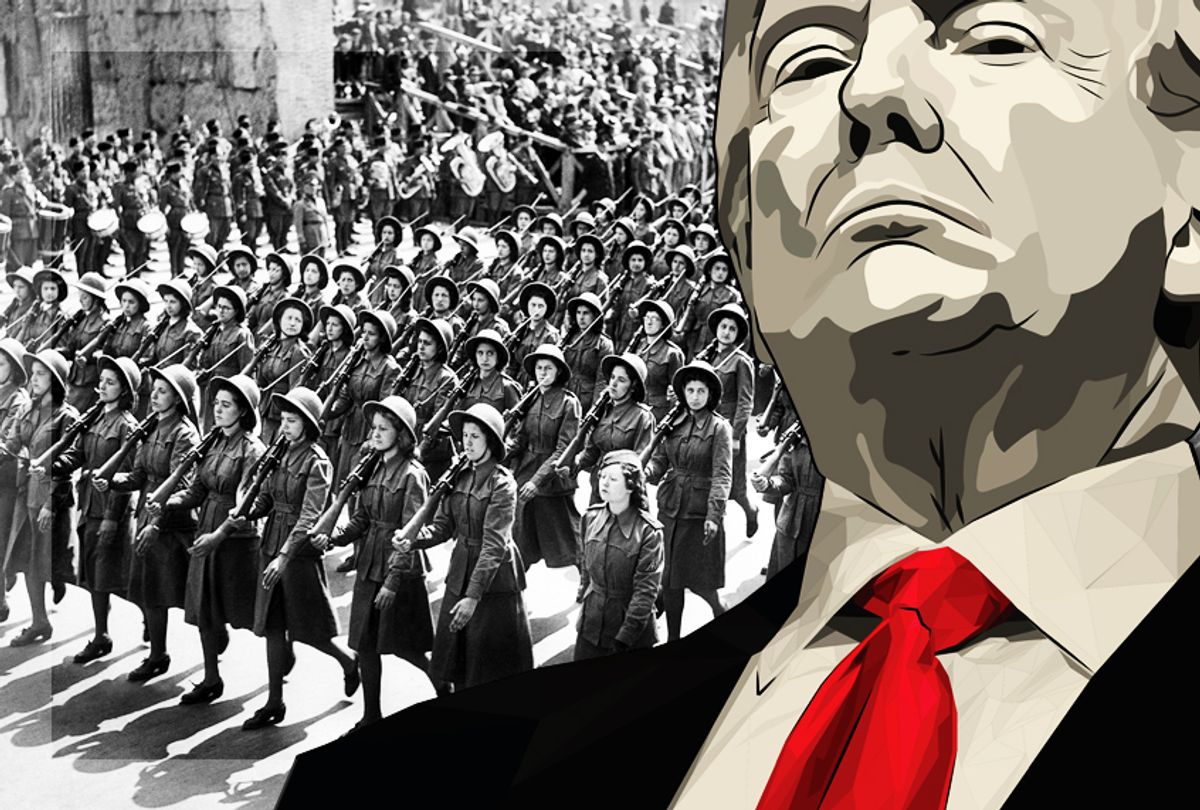The import of what Trump had in mind when he expressed wanting to prosecute his political opponents criminally is still sinking in.
Such an action certainly would have been a deep abuse of power and probably grounds for impeachment. Yet, in the current run of acts and words from the Oval Office, it is passing as just another hyperbolic bombshell from a president bent on breaking all rules, traditions and limitations.
As such, it is as sad a commentary on current affairs as it is an outrage. We ought to be fitting Trump with a tin hat to match his dictator ambitions.
The New York Times disclosed on Tuesday night that Trump had told White House counsel Don McGahn in the spring that he wanted to order the Justice Department to prosecute Hillary Clinton and the former FBI director James B. Comey, said two people familiar with the conversation.
Apparently, it was only because McGahn warned Trump he could face impeachment for doing so that Trump backed off.
The most concerning part here is not the fate of Clinton or Comey, but the idea that Trump thinks ordering individual prosecutions by the Justice Department is perfectly normal. As The Times noted, “The encounter was one of the most blatant examples yet of how Trump views the typically independent Justice Department as a tool to be wielded against his political enemies. It took on additional significance in recent weeks when McGahn left the White House and Trump appointed a relatively inexperienced political loyalist, Matthew G. Whitaker, as the acting attorney general.”
Perhaps this is all tit-for-tat, another diversion from the special counsel investigation that Trump himself faces. If he could launch another special counsel against political opponents, perhaps he thinks he could blunt the effects of the all-things-Russia probe. Of course, the fatal flaw here is that the Justice Department, through Comey, has already spoken on the Clinton matters, and there is no evidence of any crime. Comey may have leaked a memo, but it was not classified material.
Indeed, according to The Times’ sources, Trump has continued to privately discuss the possible prosecutions and has also repeatedly expressed disappointment in FBI Director Christopher A. Wray, for failing to more aggressively investigate Clinton, calling him weak.
Actually, it is not clear which accusations Trump had in mind. He has accused Comey of leaking classified information, of mishandling sensitive government information and for his role in the Clinton email investigation. Trump wants to investigate Clinton over emails and classified leaks–almost all the included material she emailed was classified months later–and over her role in the Obama administration’s decision to allow the Russian nuclear agency to buy a uranium mining company. Conservatives have long pointed to donations to the Clinton family foundation by people associated with the company, Uranium One, as proof of corruption. But no evidence has emerged that those donations influenced the American approval of the deal.
McGahn apparently told Trump that he could make such a request of Justice but warned that making such a request could create a series of problems.
Here’s the problem for me: Why does Trump not understand that in a democracy, the president does not pursue whims as criminal investigations, particularly against opponents who simply counter him in the political arena? That is what we expect from countries with dictators.
In particular, the White House is supposed to be separate from the Justice Department. As The Times explained, “Presidential meddling could undermine the legitimacy of prosecutions by attaching political overtones to investigations in which career law enforcement officials followed the evidence and the law.”
Yet, we have seen Trump stick his toe into these prosecutorial waters through selective clemency requests, which is within his purview, and by just declaring wholesale travel bans and policies to eliminate amnesty procedures.
It is true that the president is urged onto these paths through his supporters, including Fox News commentator Jeanine Pirro. Trump once called his distance from law enforcement one of the “saddest” parts of being president.
He was not elected to extract a pound of flesh from his political opponents.
If he cannot control himself, we are headed for trouble.



Shares